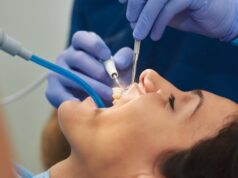Caring for your family’s teeth helps ensure lifelong health. Preventive dentistry plays a key role in maintaining healthy smiles at every age. A Salt Lake City family dentist shares several simple tips that can make a big difference. By focusing on prevention, we can help avoid problems before they start. This approach not only saves time and money but also reduces discomfort. It encourages positive habits that last a lifetime. Think of preventive dentistry as a shield, protecting your teeth from cavities, gum disease, and other issues. With regular check-ups, proper brushing, and a balanced diet, we can all have healthier teeth. This blog will guide you through essential strategies to keep your family’s teeth strong and vibrant. From toddlers to grandparents, everyone can benefit from these practices. Let’s explore how routine care, fluoride, and diet choices contribute to oral health. Embrace these habits for healthy teeth and a confident smile.
Understanding Preventive Dentistry
Preventive dentistry involves regular dental care that helps prevent oral diseases. This includes habits like brushing, flossing, and maintaining a balanced diet. Regular visits to the dentist are essential. These visits can help catch potential issues early and provide professional cleanings. The goal is to maintain healthy teeth and gums throughout life. According to the Centers for Disease Control and Prevention, preventive measures can greatly reduce the incidence of oral health problems.
Key Tips for Children
Starting early sets the foundation for good oral health. Here are three main tips for children’s dental care:
- Start Early: Begin oral care as soon as the first tooth appears. Clean the baby’s teeth with a soft cloth or an infant toothbrush.
- Regular Dental Visits: Schedule the first dental visit by the child’s first birthday. Regular check-ups help in the early detection of issues.
- Limit Sugary Snacks: A diet low in sugar reduces the risk of cavities. Encourage fruits, vegetables, and whole grains instead.
Preventive Care for Teens and Adults
As children transition into teens, oral care habits should continue to be a priority. The focus should be on maintaining and improving those early habits. Here are key practices:
- Continue Routine Brushing and Flossing: Brush twice a day and floss daily. This helps prevent plaque build-up and cavities.
- Use Fluoride: Fluoride strengthens tooth enamel. It is found in toothpaste and can be an ingredient in mouth rinses.
- Regular Check-Ups: Dentists can provide guidance on proper care and check for signs of gum disease or cavities.

Oral Health in Seniors
Oral health remains important as we age. Senior dental care focuses on maintaining existing teeth and preventing oral diseases:
- Manage Dry Mouth: Some medications can cause dry mouth, increasing the risk of cavities. Drinking water frequently and using sugar-free gum can help.
- Regular Dental Visits: These visits check for issues like gum disease, root decay, and oral cancer.
- Maintain a Healthy Diet: Nutrients like calcium and vitamin D help maintain strong teeth and bones.
Comparison of Dental Care Practices
| Age Group | Key Practice | Benefit |
|---|---|---|
| Children | Limit sugary snacks | Reduces cavity risk |
| Teens and Adults | Use fluoride toothpaste | Strengthens enamel |
| Seniors | Manage dry mouth | Prevents cavities |
The Role of Diet in Dental Health
Diet is a crucial part of maintaining oral health. A balanced diet provides the nutrients needed for healthy teeth and gums. Avoid sugary and acidic foods that can harm enamel. Instead, focus on foods rich in calcium and phosphates. According to the U.S. Department of Health & Human Services, incorporating dairy, leafy greens, and almonds supports strong teeth.
Conclusion
Preventive dentistry is a lifelong commitment to oral health. By focusing on daily habits and regular dental visits, we create a strong foundation for healthy teeth. The benefits extend beyond oral health, impacting overall well-being. Remember that good habits formed early can last a lifetime, protecting the smiles of your loved ones. Let’s embrace preventive care for a healthier, happier future.










